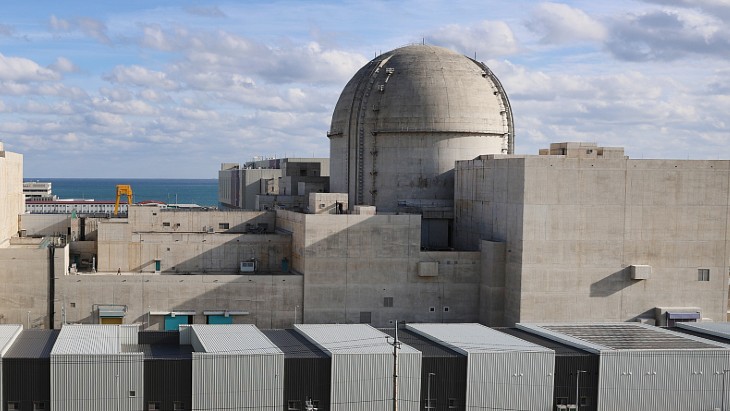Following endorsement by the Cabinet of Ministers, the government of the United Arab Emirates has published a comprehensive national policy on nuclear energy in order to meet a more than doubling in energy demand by 2020.
The policy projects electricity demand escalating from 15.5 GWe in 2008 to over 40 GWe in 2020, with natural gas supplies only able to meet half of this. Nuclear power emerged as a proven, competitive option to meet this demand and provide future energy security.
Accordingly, "the UAE is establishing a Nuclear Energy Program Implementation Organization as recommended by the IAEA." This implementation organization will be known as the Emirates Nuclear Energy Corporation (ENEC). Its establishment is well under way as a public entity, initially funded with $100 million, to evaluate the potential for implementing nuclear power plants within the UAE.
Secondly, the UAE "will also draft a comprehensive national nuclear law" which establishes a fully independent nuclear regulatory authority. Thirdly, it will "offer joint-venture arrangements to foreign investors for the construction and operation of future nuclear power plants" similar to existing Independent Water and Power Producer structures which are jointly owned by the government and foreign JV partner(s).
Finally, "In lieu of domestic enrichment and reprocessing, the UAE would seek to conclude long-term arrangements with foreign suppliers ... for the secure supply of nuclear fuel, as well as ... if available, the disposal of spent fuel via fuel leasing or other emerging fuel supply arrangements."
The UAE's implementation organization met in Abu Dhabi in late June with a number of nuclear industry companies which are prospective participants in its plans, notably constructing and operating the first of 14 proposed nuclear power plants, delivering 20 GWe by 2020. This total nuclear capacity would free up 35 million tonnes (24 million barrels) of oil or 40 billion cubic metres of gas per year for export.
The UAE has nuclear cooperation agreements in place with the USA, UK and France. In January, three French companies (Areva, Suez and Total) signed a partnership agreement to propose to the UAE the construction of two 1600 MWe EPR units at Abu Dhabi, with majority local equity. More such proposals are set to follow as trade-off for access to oil and gas, according to Total.
In December 2006 the six member states of the Gulf Cooperation Council - Kuwait, Saudi Arabia, Bahrain, the UAE, Qatar and Oman - announced that the Council was commissioning a study on the peaceful use of nuclear energy. France agreed to work with them on this, and Iran pledged assistance with nuclear technology.
In February 2007 the six states agreed with the International Atomic Energy Agency (IAEA) to cooperate on a feasibility study for a regional nuclear power and desalination program. Saudi Arabia was leading the investigation and thought that a program may emerge about 2009.
The six nations are all signatories of the NPT and the UAE ratified a safeguards agreement with IAEA in 2003.




_72306.jpg)


_49562.jpg)





